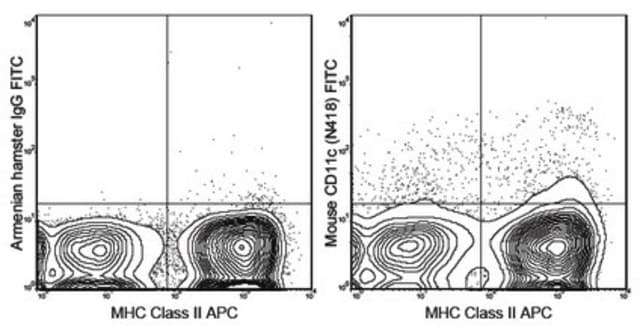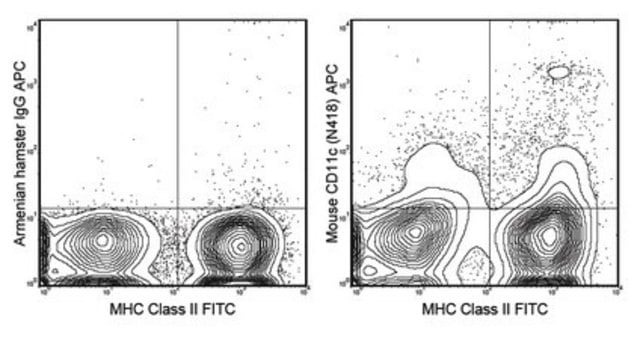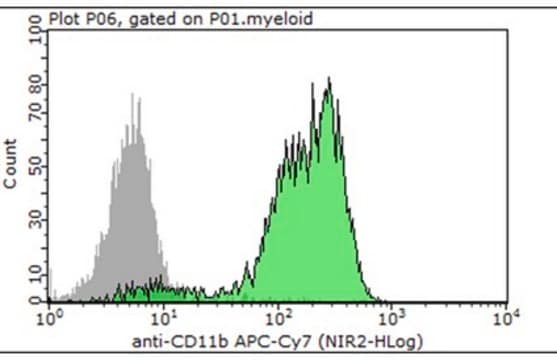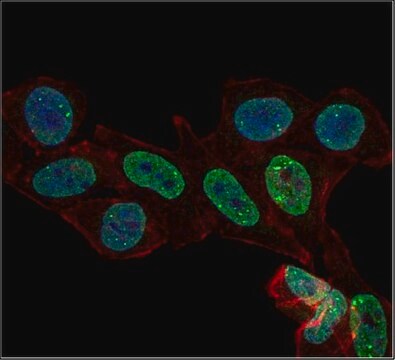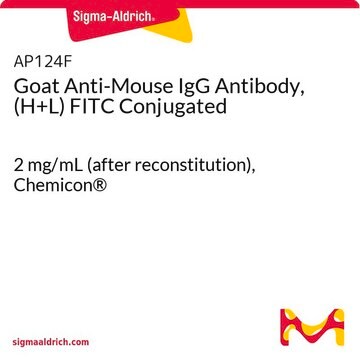MABF150A
Anti-CD11c (Mouse), redFluor® 710, clone N418 Antibody
clone N418, from hamster(Armenian), redFluor® 710
Synonyme(s) :
Integrin alpha-X, CD11 antigen-like family member C, Leukocyte adhesion glycoprotein p150,95 alpha chain, Leukocyte adhesion receptor p150,95, CD11c, CD11c
About This Item
Produits recommandés
Source biologique
hamster (Armenian)
Niveau de qualité
Conjugué
redFluor® 710
Forme d'anticorps
purified antibody
Type de produit anticorps
primary antibodies
Clone
N418, monoclonal
Espèces réactives
mouse
Conditionnement
antibody small pack of 25 μg
Technique(s)
flow cytometry: suitable
Isotype
IgG
Numéro d'accès UniProt
Modification post-traductionnelle de la cible
unmodified
Informations sur le gène
mouse ... Itgax(16411)
Description générale
Immunogène
Application
Inflammation & Immunology
Immunoglobulins & Immunology
Qualité
Flow Cytometry Analysis: 0.125 μg from a representative lot detected CD11c in one million C57Bl/6 splenocytes.
Forme physique
Stockage et stabilité
Note: It is recommended to store the product undiluted at 2-8°C and protected from prolonged exposure to light. Do not freeze.
Autres remarques
Informations légales
Clause de non-responsabilité
Vous ne trouvez pas le bon produit ?
Essayez notre Outil de sélection de produits.
Code de la classe de stockage
12 - Non Combustible Liquids
Classe de danger pour l'eau (WGK)
nwg
Point d'éclair (°F)
Not applicable
Point d'éclair (°C)
Not applicable
Certificats d'analyse (COA)
Recherchez un Certificats d'analyse (COA) en saisissant le numéro de lot du produit. Les numéros de lot figurent sur l'étiquette du produit après les mots "Lot" ou "Batch".
Déjà en possession de ce produit ?
Retrouvez la documentation relative aux produits que vous avez récemment achetés dans la Bibliothèque de documents.
Notre équipe de scientifiques dispose d'une expérience dans tous les secteurs de la recherche, notamment en sciences de la vie, science des matériaux, synthèse chimique, chromatographie, analyse et dans de nombreux autres domaines..
Contacter notre Service technique